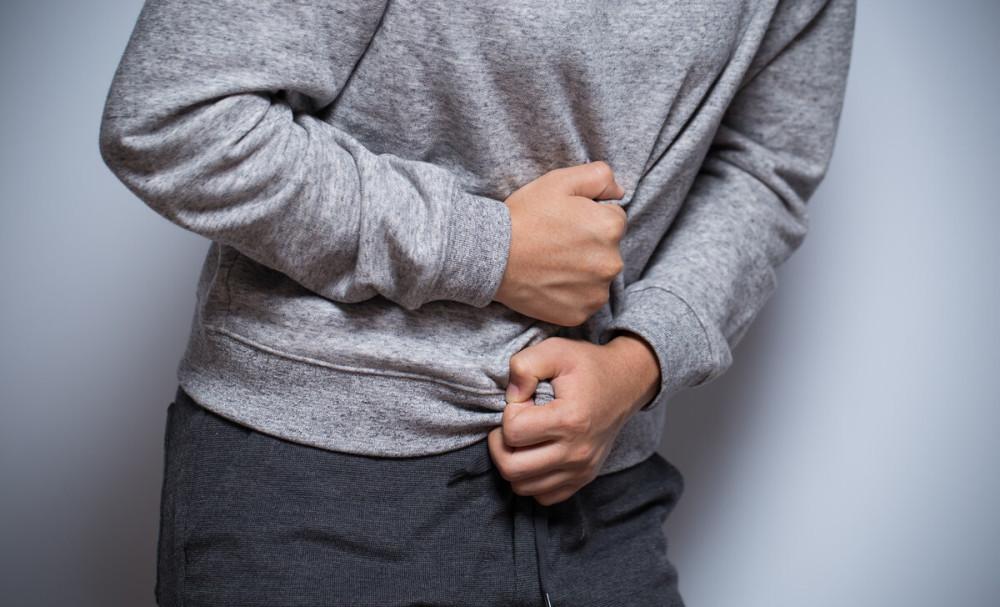Mr. Meng 4 years ago, repeated stomach pain, and then poor appetite, weight loss, to the hospital after a gastroscopy, diagnosed stomach cancer.

Later, after gastric resection surgery, Mr. Meng's quality of life has been poor in recent years, still has no appetite, emaciation, eating, but unhappy.
A month ago, Mr. Meng's wife also had stomach discomfort, acid reflux, abdominal pain, nausea, emaciation, had to do a gastroscopy, the result is also stomach cancer!
What a curse!
You must be wondering, is stomach cancer also contagious?
Of course not, stomach cancer is not contagious. But a pathogenic bacterium that causes stomach cancer can be transmitted through daily life contacts.
This pathogenic bacteria is called "Helicobacter pylori"!
Latest News: The United States lists Helicobacter pylori as a definitive carcinogen!
Some people say strange things, saying: We are Chinese, not Americans, and we don't use American standards.
In fact, it is not necessary to do so, this is a medical concept, not to mention that before the United States listed Helicobacter pylori as a clear carcinogen, that is, in 2017, the World Health Organization has listed Helicobacter pylori as the first class of carcinogens.
Besides, this standard is set for others, not for some kind of benefit, or for us with colored glasses. We just express it objectively.
Science has no borders, science is not aesthetic!
I. Why does Helicobacter pylori cause cancer?
Helicobacter pylori can resist stomach acid, so after entering the human body, it can survive and multiply in the epithelial cells of the gastric mucosa, and in the process will produce a large number of aggressive factors and toxins, prompting peptic ulcers and even stomach cancer.
About 10% of people infected with Helicobacter pylori develop peptic ulcers, such as gastric ulcers and duodenal ulcers. In rare cases, Helicobacter pylori infection can induce stomach cancer.
Therefore, both the World Health Organization and the United States list Helicobacter pylori as a carcinogen.
Second, the infection rate
The infection rate of Helicobacter pylori is related to the country's degree of development, hygiene habits, and medical conditions.
Statistics show that in developed countries, the infection rate of Helicobacter pylori is about 25% to 50%, the infection rate of Helicobacter pylori in our country is about 50%, and the infection rate of Helicobacter pylori in developing countries is about 50% to 80%
Third, why is it said that Mr. Meng's wife's stomach cancer is most likely infected by Mr. Meng?
Helicobacter pylori is transmitted in the following ways:
1. Eating unclean food or drinking unclean water may be infected with Helicobacter pylori;
2. Eat with the infected person, drink water together, or use the bowl or cup of the infected person. At the same time that Mr. Meng was diagnosed with stomach cancer, he was also found to have Helicobacter pylori (+), which means that Mr. Meng had Helicobacter pylori infection. Over the years, they have eaten together and lived together, and have never shared meals, so Mr. Meng's wife is infected with Helicobacter pylori, and the first thing to consider is that Mr. Meng is infected.
3. Close contact, such as kissing, such as close contact between children and students in kindergartens or schools;
4. Do not wash your hands after contact with the saliva, body fluids, vomit or fecal excrement of an infected person.
All of these pathways can infect Helicobacter pylori, Mr. Meng's wife, who may be infected with Helicobacter pylori one day, and then the unfortunate person, from Helicobacter pylori infection, eventually to stomach cancer.
4. How do we determine if we have Helicobacter pylori infection?
At the beginning of Helicobacter pylori infection, most people will not have any discomfort, when some of them develop gastritis, stomach ulcers, stomach cancer, it will gradually appear some symptoms, such as: abdominal pain, bloating, nausea, acid reflux, weight loss, and even fatigue, anemia, bleeding and so on.
To confirm the presence of Helicobacter pylori infection, you have to go to the hospital for examination. One way is to do gastroscopy specimen testing, but many people are reluctant to do gastroscopy. Another method is to blow the air, and the results can be produced in a few minutes.
Eradication of Helicobacter pylori infection can reduce the risk of stomach cancer by 39%, so after finding Helicobacter pylori infection, you need to find a professional gastroenterologist for 4 combination therapy, after 14 days of treatment, most of them can be cured!
5. How to prevent it in normal times?
Family members have a clear Helicobacter pylori infection, family members are best to check, because the rate of Helicobacter pylori infection is very high, you think that half of the people have infection, then the possibility of family members being infected is extremely high.
If Mrs. Meng can check a Helicobacter pylori infection when Mr. Meng is diagnosed with helicobacter pylori infection and confirmed stomach cancer, and find it in time to cure it in time, she may not develop stomach cancer.
Of course, even after radical treatment, follow-up prevention is required:
1, and the infected people separate chopsticks, spoons, bowls, for meal sharing system, do not feel embarrassed, health is the most important.
2, before eating and after the toilet must wash hands, eat cooked food, drink boiled water, raw vegetables and fruits to peel.
3. Pay attention to oral hygiene, brush your teeth on time, and replace your toothbrush regularly.
4. High-risk groups, or have discomfort, need to see a doctor as soon as possible.
In short, dietary hygiene is very critical, Helicobacter pylori infection rate is very high, belongs to carcinogens, need to attract everyone's attention!